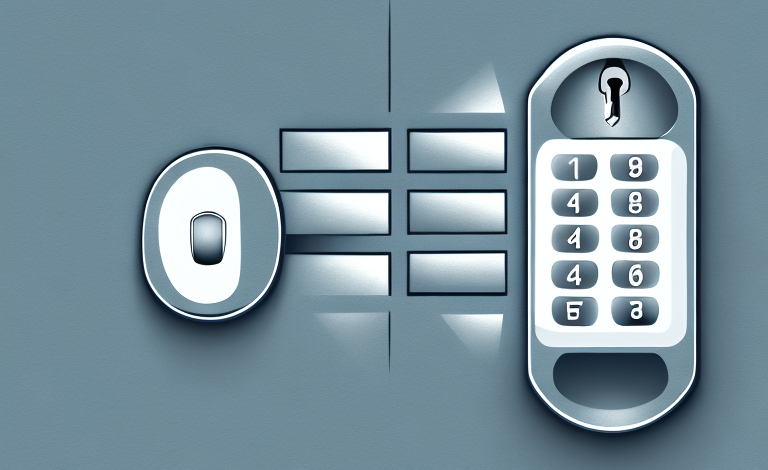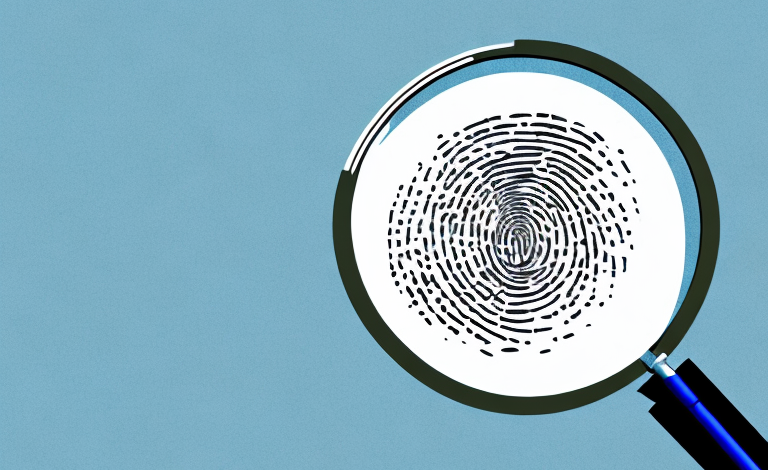As a homeowner or business owner, one of the most important factors to consider when selecting a lock for your property is how long it will last. This is particularly true for keypad door locks, which rely on electronic or mechanical components to function. In this article, we will explore the various factors that impact the lifespan of keypad door locks, and offer tips for extending their longevity.
Factors that impact the lifespan of keypad door locks
There are several factors that will determine how long your keypad door lock will last. The first is the level of usage. If the lock is in constant use, it will naturally wear out sooner than a lock that is used less frequently. Another factor is the quality of the locking mechanism itself. Cheaper locks that are made from lower quality materials will not last as long as higher quality locks that are made from more durable materials.
Another important factor is the environment in which the lock is installed. For example, a keypad lock that is installed outdoors will be exposed to harsher weather conditions than one that is installed indoors. This can impact the lifespan of the lock and may result in more frequent maintenance or replacement.
Additionally, the level of maintenance and care that the lock receives can also impact its lifespan. Regular cleaning and lubrication of the lock can help to prevent wear and tear and extend its lifespan. Neglecting to maintain the lock can lead to malfunctions and a shorter lifespan.
The difference between electronic and mechanical keypad locks and their durability
Electronic keypad locks rely on batteries to power the lock and facilitate entry, while mechanical keypad locks require a manual turning of the lock’s knob or lever. Both types of locks can be durable if they are made from high-quality materials and are maintained properly. However, electronic keypad locks are often considered more prone to wear and tear due to the electronic components involved.
It is important to note that electronic keypad locks may also be vulnerable to hacking or electronic interference, which can compromise their security. On the other hand, mechanical keypad locks are less susceptible to these types of attacks and can provide a higher level of security. Additionally, mechanical keypad locks do not require batteries, which means they can continue to function even during power outages or when batteries run out.
Signs that indicate your keypad lock is starting to wear out
There are several signs that your keypad lock may be starting to wear out. One of the most common is difficulty in entering the correct code or the lock failing to open at all. This may indicate that the lock’s mechanical or electronic components are starting to fail. Another potential sign is the lock becoming loose or wobbly, which may indicate a problem with the lock’s installation or structural integrity. It is important to address any of these issues as soon as possible to avoid a total lock failure.
Another sign that your keypad lock may be starting to wear out is if the buttons on the keypad become unresponsive or stick when pressed. This can be caused by dirt or debris getting stuck in the buttons or a malfunction in the electronic components. Additionally, if you notice that the battery life of your keypad lock is decreasing rapidly or the lock is not holding a charge, it may be time to replace the batteries or the lock itself. It is important to regularly maintain and inspect your keypad lock to ensure its proper functioning and security.
Best practices for extending the lifespan of your keypad lock
There are several steps that you can take to extend the lifespan of your keypad lock. The first is to choose a high-quality lock from a reputable manufacturer. This will ensure that the lock is made from durable materials and is less likely to fail prematurely. Additionally, regular maintenance is crucial to ensuring the longevity of your lock. This may include cleaning the lock regularly, replacing batteries when necessary, and lubricating the lock’s mechanical components to prevent rust and corrosion.
Another important factor to consider is the location of your keypad lock. If the lock is exposed to extreme weather conditions, such as direct sunlight or heavy rain, it may deteriorate faster than if it were installed in a sheltered area. To prevent this, consider installing a weatherproof cover over the lock or moving it to a more protected location.
Common problems with keypad locks and how to troubleshoot them
One of the most common problems with keypad locks is difficulty in entering the correct code or the lock failing to open. If this is the case, first check that the correct code has been entered. If this does not solve the problem, check the batteries to ensure that they are still functioning properly. If neither of these steps resolves the issue, it may be time to consult a locksmith for more in-depth troubleshooting and repairs.
Another common problem with keypad locks is the keypad becoming unresponsive or malfunctioning. This can be caused by dirt or debris getting stuck in the buttons or the keypad being exposed to moisture. To troubleshoot this issue, try cleaning the keypad with a soft cloth and some rubbing alcohol. If this does not work, try resetting the lock by removing the batteries and holding down the keypad button for 10 seconds before reinserting the batteries. If the problem persists, it may be necessary to replace the keypad or the entire lock.
When to replace your keypad lock
If your keypad lock is experiencing frequent problems or is simply not functioning as well as it used to, it may be time to replace the lock entirely. In general, electronic keypad locks should be replaced every 5-10 years, while mechanical keypad locks can last up to 20 years with proper maintenance and care.
It is important to note that if your keypad lock has been compromised in any way, such as a break-in attempt or damage to the lock itself, it should be replaced immediately for the safety and security of your home or business. Additionally, if you have recently moved into a new home or office, it is recommended to replace all locks, including keypad locks, to ensure that you are the only one with access to the property.
Comparing the costs of repairing versus replacing a faulty keypad lock
If you are experiencing issues with your keypad lock, it is important to consider whether it is more cost effective to repair or replace the lock. In general, if the lock is a few years old or older, it may be more cost effective to replace the lock entirely rather than to repair it piecemeal. This will ensure that the lock is fully functional and will last for years to come.
However, if the lock is relatively new and the issue is minor, such as a dead battery or a loose wire, it may be more cost effective to simply repair the lock. In this case, it is important to consult with a professional locksmith to determine the best course of action. They can assess the lock and provide a recommendation based on the specific issue and the age of the lock.
How to choose a high-quality, durable keypad door lock
When selecting a keypad door lock, it is important to choose a lock that is made from high-quality materials and will be able to withstand the elements and frequent use. One of the best ways to do this is to choose a lock from a reputable manufacturer with a proven track record of producing quality locks. Additionally, look for locks that come with warranties or guarantees to ensure that you are protected in the event of a malfunction or defect.
Another important factor to consider when choosing a keypad door lock is the level of security it provides. Look for locks that have multiple levels of authentication, such as a PIN code and a fingerprint scanner, to ensure that only authorized individuals can access your property. It is also important to choose a lock with a strong and durable deadbolt to prevent forced entry. Finally, consider the ease of installation and compatibility with your existing door hardware to ensure a seamless integration into your home security system.
Maintenance tips for keeping your keypad lock in top working condition
Maintaining your keypad lock properly is crucial to ensuring that it lasts for years to come. Some important upkeep tasks include cleaning the lock regularly, checking the batteries and replacing them as needed, lubricating the lock’s mechanical components regularly, and checking the lock for signs of wear and tear or other issues. In addition to these regular maintenance tasks, it is important to address any problems or issues with the lock as soon as possible to avoid more serious problems down the line.
The role of installation in the longevity of a keypad door lock
The quality of the installation is another important factor to consider when determining the longevity of your keypad lock. Improper installation can cause the lock to function improperly and can even cause premature wear and tear. To ensure that your lock is installed correctly, it is important to hire a professional locksmith who has experience installing keypad locks.
Keypad door locks vs traditional key locks: which lasts longer?
Keypad door locks and traditional key locks can both be durable if they are made from high-quality materials and are maintained properly. However, some experts argue that keypad locks may actually last longer than traditional key locks, due to their electronic components or the lack of wear and tear typically experienced by the keys of traditional key locks.
How long do different brands of keypad door locks last?
It is difficult to pinpoint an exact lifespan for different brands of keypad door locks. Generally speaking, more expensive locks from reputable brands are likely to last longer than cheaper locks from lesser-known manufacturers. Consumers should do their research to select a high-quality lock from a reputable brand to ensure that the lock lasts as long as possible.
The importance of regular inspections for ensuring the longevity of your keypad lock
Regular inspections are crucial to ensuring the longevity of your keypad lock. These inspections can help identify any potential issues or damage before they become more serious problems. It is important to have the lock inspected by a professional locksmith at least once a year to ensure that it is functioning properly and to address any issues that may arise in a timely manner.
As you can see, there are a variety of factors that impact the longevity of keypad door locks. By understanding these factors and following best practices for maintenance and upkeep, you can ensure that your lock lasts for years to come. By investing in a high-quality lock from a reputable manufacturer and hiring a professional locksmith for installation and maintenance, you can feel confident that your property is protected and secure.



